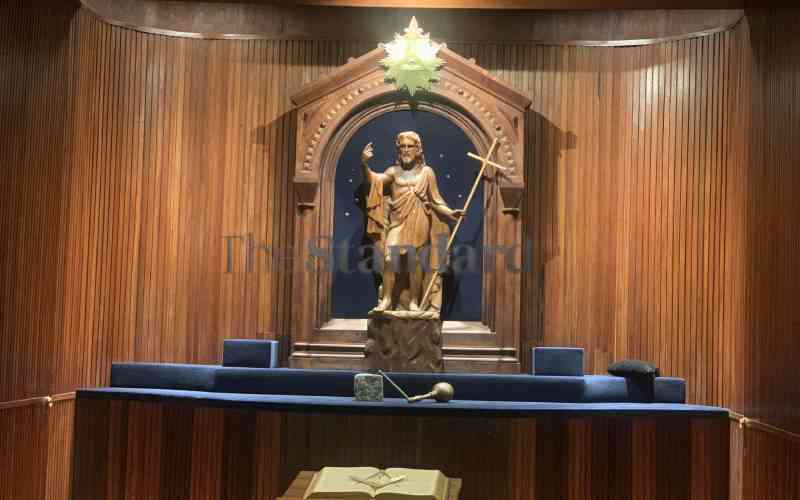
The silence in the room is interrupted by knocks on the wooden door and piped music. Everyone in the room stands up. The doors open and three elderly men clad in black suites, bowties and white gloves walk in. The music gets louder. It sounds like a church organ is playing in the background.
The first man walks a few steps ahead of the other two. He is carrying a rod while the other two men walk into the room holding hands. After a few steps, the man walking ahead stops and turns around, he raises the rod and places it close to his chest, turns around and continues walking to the front. The other two men follow closely. When they get to the front, the two men bow to each other and proceed to the left side of the room. The man carrying the rod walks to a man seated on a high seat on the right side of the room, bows to him and taps the wooden floor using the rod.